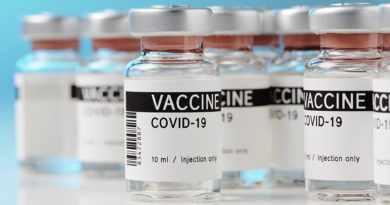NHS Manager asks why the Government is hell-bent on enforcing mandatory ‘Covid-19’ fake vaccination for NHS staff when evidence proves the fake vaccines are unsafe and don’t work

In the absence of an impact assessment, Parliament has recently voted to mandate COVID vaccinations for care home staff. Consequently, it was anticipated that a consultation would commence regarding introducing mandatory vaccinations for healthcare staff and other care workers. That moment has now arrived, and the proposals also include the mandating of influenza vaccinations.
As a healthcare worker who chooses not to be vaccinated this will impact me personally. However, the implications of mandatory COVID and influenza vaccinations are much broader and raise moral and ethical question for policy makers. Below I set out reasons why I oppose these proposals.
By anonymous NHS Manager, DomJazzSoul
Workforce implications
It is worth reminding ourselves that the staff in question are the same ones heralded as heroes for sacrificing themselves and caring for COVID-19 patients during the height of the pandemic. They did this work in the absence of sufficient knowledge regarding the risks posed by this virus.
Now the very same staff are being penalised and vilified for wishing to refuse or delay receiving the COVID-19 vaccination. There are already high take-up rates – exceeding levels recommended by SAGE – of the covid vaccine in the health and care sectors. 92% of NHS trust staff have, at the time of writing, had one dose of the covid-19 vaccine and 88% have had both doses. The uptake of influenza vaccination has been high in NHS providers in recent years. Proposing to mandate the flu jab in a year where flu has been eradicated seems illogical.
Although there was no ‘proper impact assessment’ regarding mandating the vaccine for care home staff, there was an ‘impact statement’ which forecast a potential loss of up to 70,000 care staff in a sector already experiencing high vacancy and turnover rates. If a similar impact is anticipated for healthcare, then this will have a detrimental impact on the patients and residents we are duty-bound to protect.
Status of the vaccine
A key point to make here is that, in the UK at least, these drugs are still not licensed. The vaccines were given temporary authorisation for one year after an extremely rapid period of development. Prior to COVID-19, vaccines have taken years to be developed.
The track record of some of the vaccine manufacturers is either dubious or non-existent and furthermore they are exempt from liability. The current UK vaccine compensation scheme is both insufficient and under-staffed (there are four people working in the department dealing with vaccine damage applications).
*** This article has been archived for your research. The original version from David Icke can be found here ***



